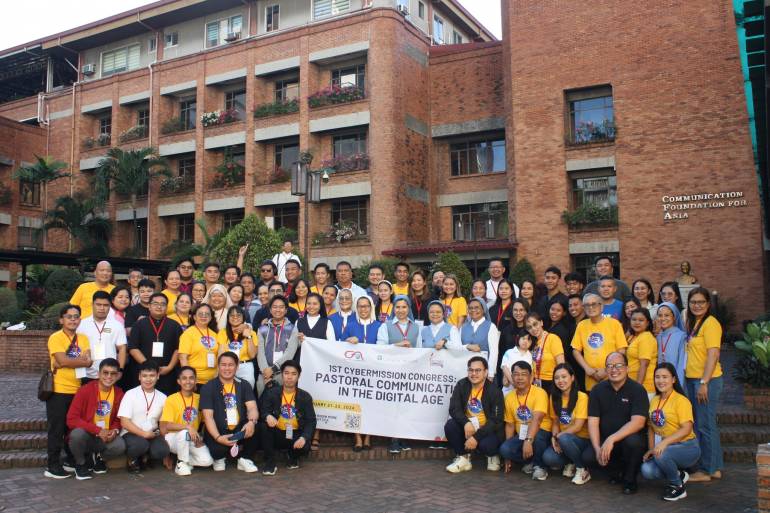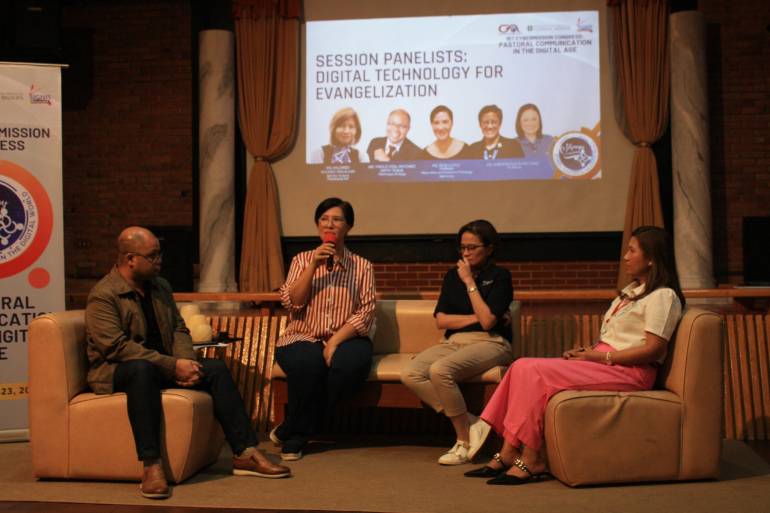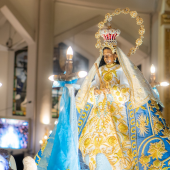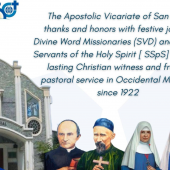First cyber mission congress on pastoral management held in Philippines

A three-day cyber mission congress was held with resource speakers from various Philippine dioceses and organizations, with an emphasis on pastoral engagement in the era of digital media.
The US Conference of Catholic Bishops, Signis Philippines, and the Communication Foundation for Asia collaborated to arrange the event, which took place in Sta. Meza, Manila, on February 21–23.
"Pastoral Communication in the Digital Age" was the theme.
Thought leaders discussing problems, possibilities, and difficulties in the digital age that the church must comprehend, and address were featured in the program.
Bishop Marcelino Antonio Maralit Jr., the head of the Catholic Bishops' Conference of the Philippines' Episcopal Commission on Social Communication, gave a keynote speech on assessing the role of the church in the current digital environment.
"Given their impact on our culture, certain practices need to be reexamined as we become citizens of the digital nation," he stated.
Father Michael Dacalos, a Sacred Heart Missionary and the digital creator of The Pop Monk discussed the document's challenge and call to action for Christian netizens to fully participate.
He emphasized that in addition to global hostilities, a "digital war" is raging on various social media platforms due to disinformation and a profit-driven business that takes advantage of people's curiosity about topics.
Ms. Sky Ortigas, Vice President of YouthPinoy, spoke to the attendees about her role as a missionary, evangelizer, and cyberleader.
She talked about how she made connections and changed both before and after the pandemic. She also discussed their unmet expectations for the future and how they overcame obstacles to give them greater significance.
Participants took part in a workshop discussing the opportunities and difficulties associated with cyber missions. Attendees engaged in discussions to foster relationships and enhance productivity within their respective dioceses or organizations.
Following their descriptions of each successful project that greatly encourages the Catholic community to flourish and continue serving God, the panelists addressed audience questions to promote digital technology evangelism.
During the plenary session, speakers included Ms. Bob Lopez from Mary Help of Christian Theology Seminary, Mr. Paolo Joel Antonio from Pathways of Hope, Ms. Kat Diaz from TV Maria, and Ms. Mildred Nicasio-Malaluan from Faithbook.

Mennen Aracid, from the Ateneo Graduate School of Business, spoke about the use of AI in missions and activities in the religious domain.
In his fight for truth and integrity in the face of a predictive algorithm, Hemmady Mora, dean of the Polytechnic of the University of the Philippines—College of Communication, concentrated.
She gave a talk on how to avoid misleading information on internet platforms and gained a deeper grasp of the digital world.
"We, as communicators, need to understand the online realm in order to combat the people who propagate misleading data in today's world," the speaker stated.
Quezon City Hall's IT specialist, Kristine Aquino, spoke on adjusting to more digital procedures.
As more and more systems become digital, Ms. Aquino discussed the methods that everyone needs to learn to finish duties and operations.
The executive director of the Communication Foundation for Asia, Ms. Pie Mabanta-Fenomeno, said, "When you communicate, you are not speaking to yourself but rather with people who will have backgrounds, experiences, and contexts."
Attendees in the World Café, which followed the plenary discussion on using media as an advocacy platform, talked about deciphering information and communication technology for church activities.
Radio Veritas Asia (RVA), a media platform of the Catholic Church, aims to share Christ. RVA started in 1969 as a continental Catholic radio station to serve Asian countries in their respective local language, thus earning the tag “the Voice of Asian Christianity.” Responding to the emerging context, RVA embraced media platforms to connect with the global Asian audience via its 21 language websites and various social media platforms.














